Louth Malt Kiln demolished to make way for Aldi
- Published
Kurnia Aerial Photography videoed the demolition using a drone aircraft
A derelict building which was the first concrete maltings in Europe has been demolished to make way for an Aldi supermarket.
Dubbed the "concrete cathedral" by people in the area, Louth Malt Kiln has dominated the skyline of the Lincolnshire market town since 1950.
It was built to replace maltings, where grain is turned into malt for beer, destroyed by bombs in World War Two.
It became a landmark in Louth, but many people regarded it as an eyesore.
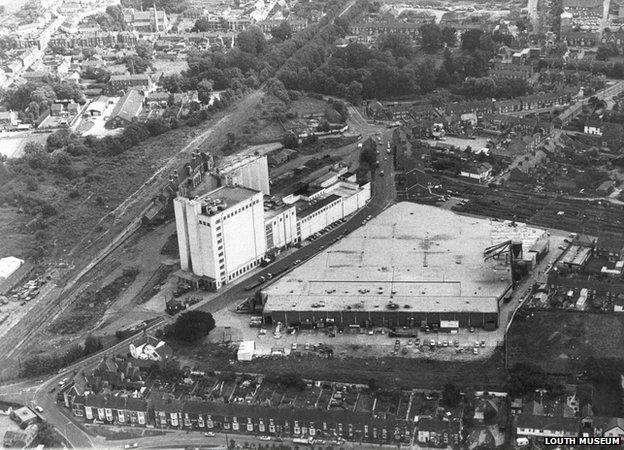
Louth Museum has collected old photos for use in an exhibition starting on 1 April
Jon Carter, from Louth Cycle Centre, which is next to the site, said he was "really pleased to see the back of" the building.
"I won't miss it at all because I'll get some daylight in here," he said.
"Most people really don't like it. It's nicknamed the concrete cathedral, that's what many people have called it."
However, he said some people had a fondness for the building because it had been there for such a long time.
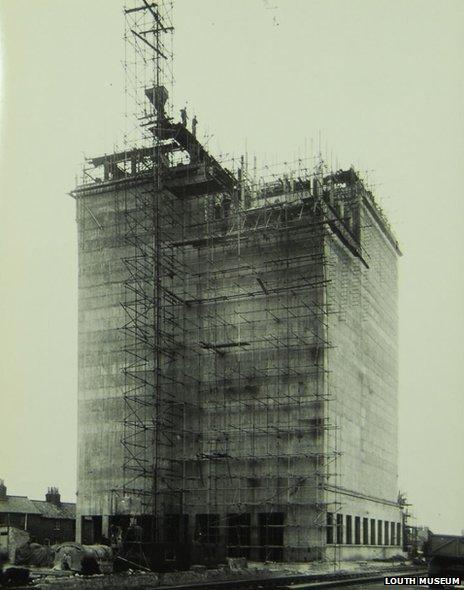
It was the first concrete malting to be built in Europe
Louth Museum, external will have an exhibition about Louth Malt Kiln, starting on 1 April.
The exhibition will include archive photos from when it was first built, and photos of it being demolished.
It was 32 metres [105 ft] at its highest point, but is now a mound of rubble.
The demolition has been documented by many people, including Chris Belton, who took photos using a camera on a small aeroplane and posted them on the Geograph website, external.
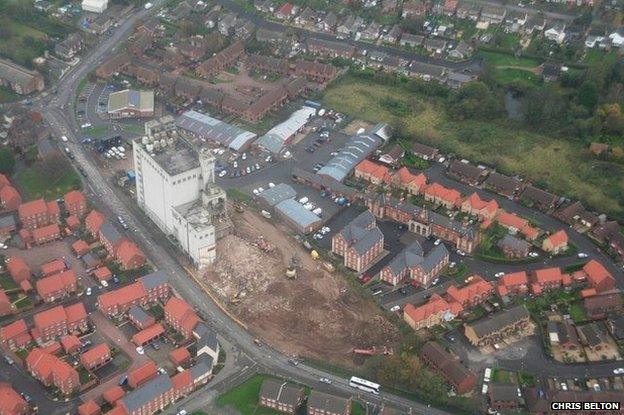
Chris Belton took photos using a camera on a small aeroplane
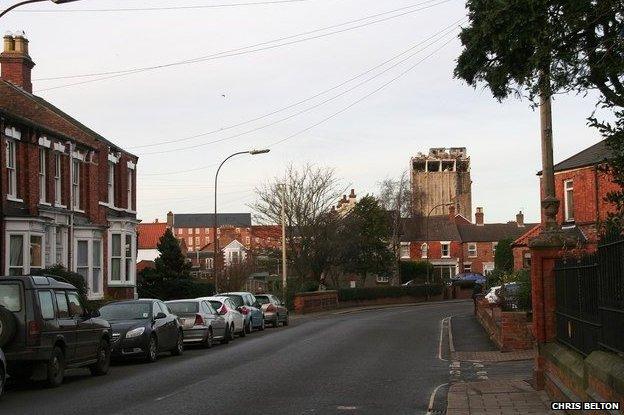
He also took photos on the ground, showing how the skyline was changing as the building was demolished
Kurnia Aerial Photography, external also videoed the demolition, external using a drone aircraft.
Adrian Corrigan from GBM Demolition said everything was going as planned.
"We've got another three weeks or so until we've actually removed all the foundations and processed all the material," he said.
- Published12 July 2013
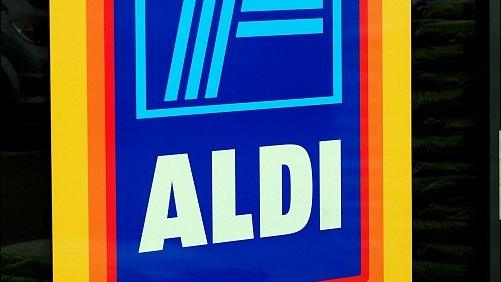
- Published19 July 2012

- Published22 December 2010